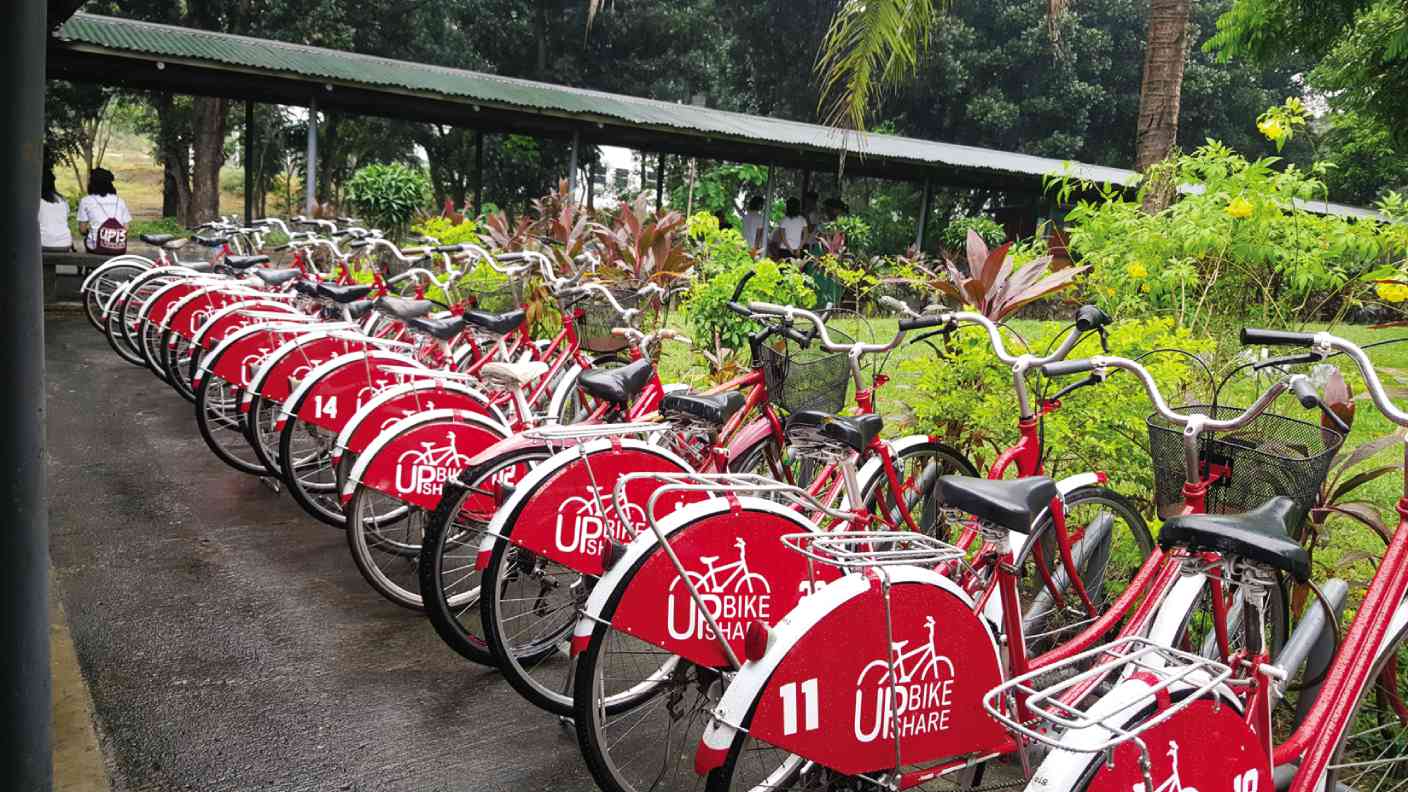THE DEPARTMENT of Science and Technology (DOST) has extended a P15-million grant to a 2-year-old program developed by University of the Philippines (UP) students, which combines technology and the earth-friendly use of bicycles to offer a viable mode of urban transport.
The proponents of the UP Bike Share Program hope to use the money to expand and upgrade the system, hoping it can be used not only on the state university campus in Diliman, Quezon City, but also pitched to other schools and communities in Metro Manila.
The scheme allows a user to go biking from one point to another and then lock the vehicle at the destination for the next person to use. The DOST grant will be used to acquire more bikes and introduce “fourth-generation technology” to the system, which has three important elements: a smart locking system, low-power tracking using smartphones, and software analytics.
All these factors are expected to make bike-sharing easier for the users and cheaper to maintain, according to the project’s chief research officer, Miguel Alberto Mercado.
In a memorandum of agreement signed last month, UP and DOST hope the “overhaul of the transportation system” in the university. Present at the signing were UP Chancellor Michael Tan and Executive Director Carlos Primo David of DOST-Philippine Council for Industry, Energy and Emerging Technology Research and Development.
“The project will include the restructuring of the transportation system in the university and act as a test bed for other such systems all over the country,” Mercado explained in an interview.
UP and DOST will collaborate on a master plan that will promote the use of smart bikes and more e-vehicles to change the current jeepney routes and road traffic scheme on the campus. “The aim is to create a proof of concept that cycling can be a form of transportation in the country,” Mercado added.
In June, the UP team composed of Mercado, Miguel Laperal, Elijah Mojares, Shawn Gabriel Lee and Andrew Escay won the “Hack the CBD” urban mobility contest, where they bested four other finalists who offered solutions to Metro Manila’s perennial traffic problem.
The team, composed of engineering, business, accounting and fine arts students, received a $1,000 cash prize. “Hack the CBD” was organized by Inquirer Mobile, the Inquirer Group of Companies’ mobile news arm; and nonprofit research and education organization Urban Land Institute Philippines.
UP Bike Share is a student-run nonprofit organization that launched the project in 2014 with just a handful of bikes bought using an initial seed money of P30,000 donated by four founding members.
After two years, it currently has 72 bikes in use, 40 of them donated by DMCI Homes. The use of the bikes is currently free of charge for UP students.
With the DOST grant, the group also hopes to buy an additional 100 bikes. So far, they have been purchasing Japan-made surplus bikes for about P2,000 per unit and spending P5,000 each to have them fixed, Laperal said.
As to the technology, UP Bike Share is still in the phase of developing a low-power tracking system. From August to December next year, they hope to manufacture the devices for the bikes, with the projected cost at P10,000 for the locks and P5,000 for the software per bike.
“We hope to commercialize this as well and bring it to different universities, rural and urban local government units, and central business districts,” Laperal added. “We are here to make it accessible; you can set up our system even in a small community where you just [need] two points or stops.”
In a commercialized operation, Laperal said the projected cost per user in the UP community may range from just P500 to P700 per semester, or about P6 a day. “That is cheaper than a jeepney ride―and how many times does a student ride a jeepney in a day?” he said.
